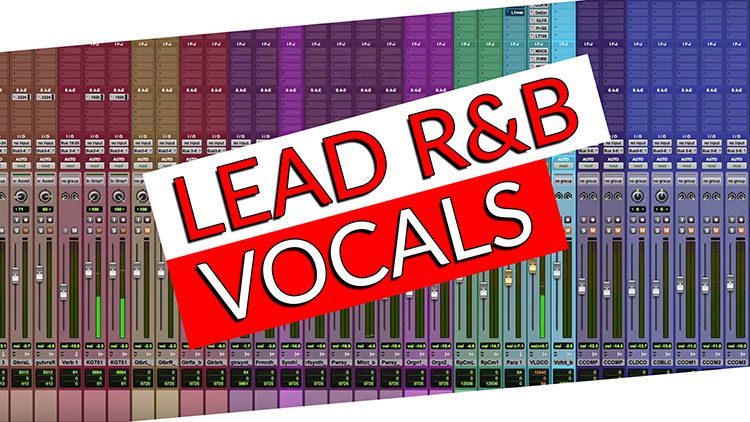Massive NAMM 2019 Giveaway!
a Rafflecopter giveaway The NAMM Show was absolutely amazing! We spent 4 days visiting a ton of manufacturers, meeting you guys, and planning out some amazing stuff for 2019! God bless all of you who voted for us, we won a TEC Award! -…
What’s New at NAMM 2019
We had a Marvellous time at the 2019 NAMM show this year and put together this blog to show you some of our favorite gear! You can find chapter times in the YouTube video description if something specific catches your…
The Best Tips for Using Reference Tracks
Trying to match the intensity and sonic quality of a commercial release is no easy task. It’s incredibly challenging, whether you’re an experienced professional or trying to mix for the first time. Using reference tracks is an essential technique when…
FAQ Friday at NAMM
We’re back with another episode of FAQ Friday! We are going to do a slightly different FAQ Friday today since we're at NAMM! We’re going to ask questions to different manufacturers, producers, and engineers that we meet throughout the day!…
Focal Trio11 Be Review (Studio Monitor Review)
I'm sitting here at my home studio and if you look behind me there is something different - I feel a little excited! About a week ago I took delivery of these Trio 11 Be speakers!. As you know we…
Adam Ayan: Mastering Paul McCartney, Katy Perry…
Adam Ayan is a GRAMMY-, 5x Latin GRAMMY-, and TEC Award-winning mastering engineer who works out of Bob Ludwig’s Gateway Mastering in Portland, Maine. Adam graduated from the University of Massachusetts at Lowell’s Sound Recording Technology program in 1997 before starting…
Mixing Lead R&B Vocals with Bob Horn
Today's video is an excerpt from our newest course called "Mixing R&B with Bob Horn." In this excerpt we take a look at some of Bob's mixing techniques when it comes to lead R&B vocals. If you want to craft…
Bob Ludwig: The Mastering Engineer’s Mastering Engineer
Bob Ludwig is an 11-time GRAMMY-winning mastering engineer, as well as the recipient of an incredible 18 TEC Awards for his achievements as an individual and as a business owner. Bob grew up in a small town in New York…
How Much Low End is Too Much? | FAQ Friday
We’re back with another episode of FAQ Friday! As always, we have a ton of marvellous questions! Our featured question of the week is: "When does low end become too much low end?" How do I answer that? Simply put,…
Eric Boulanger: World Class Mastering Engineer
Eric Boulanger is a GRAMMY-winning mastering engineer, founder of The Bakery studio, and an accomplished studio violinist. His unique talent has afforded him the opportunity to spend time in both the studio as well as on stage. Eric began studying…
Make a Mix Sound More Exciting | FAQ Friday
We’re back with another episode of FAQ Friday! As always we have a ton of marvellous questions and today we have some rather fun ones! Our featured question of the week is: "What’s your first approach to make a mix sound…
Scott Baxendale: Acoustic Conversion Process
It's always Christmas when you get a box from Mr. Scott Baxendale! - I’m so excited! I’ve had my Silvertone for ages, but it was destroyed by Delta Airlines so I used their Delta Tape for the patch - haha. I…
Joe Napolitano: Songwriter, Producer, & Engineer
Joe Napolitano is a multi-instrumental songwriter, engineer, and producer, who has played in several prominent LA-based indie rock bands over the years (Le Switch, Faraway Places, Tandemoro, Parson Redheads). In the producer/engineer role, he values a collaborative and sympathetic approach…
Mixing a Vocal Duet | FAQ Friday
We’re back with another episode of FAQ Friday! It's still very early in the year and we have a ton of great questions to choose from already! Our featured question of the week is: How do you mix a vocal…
Happy New Year!
Wow! Here it is!! Happy New Year! 2019 has officially arrived! Matt sent me some stats about 2018 regarding giveaways and they’re pretty incredible. We gave away $78,842 worth of gear! This includes plugins, mics, hardware, courses, etc. That is…

















